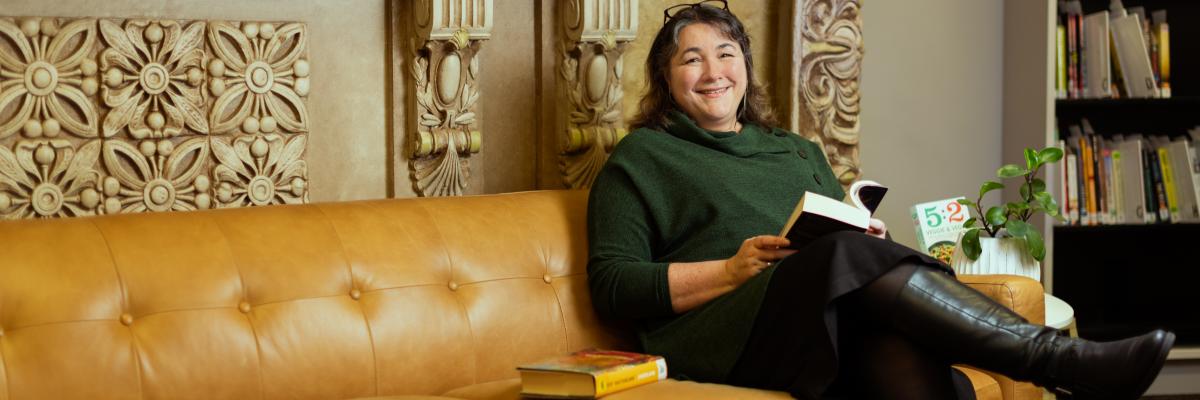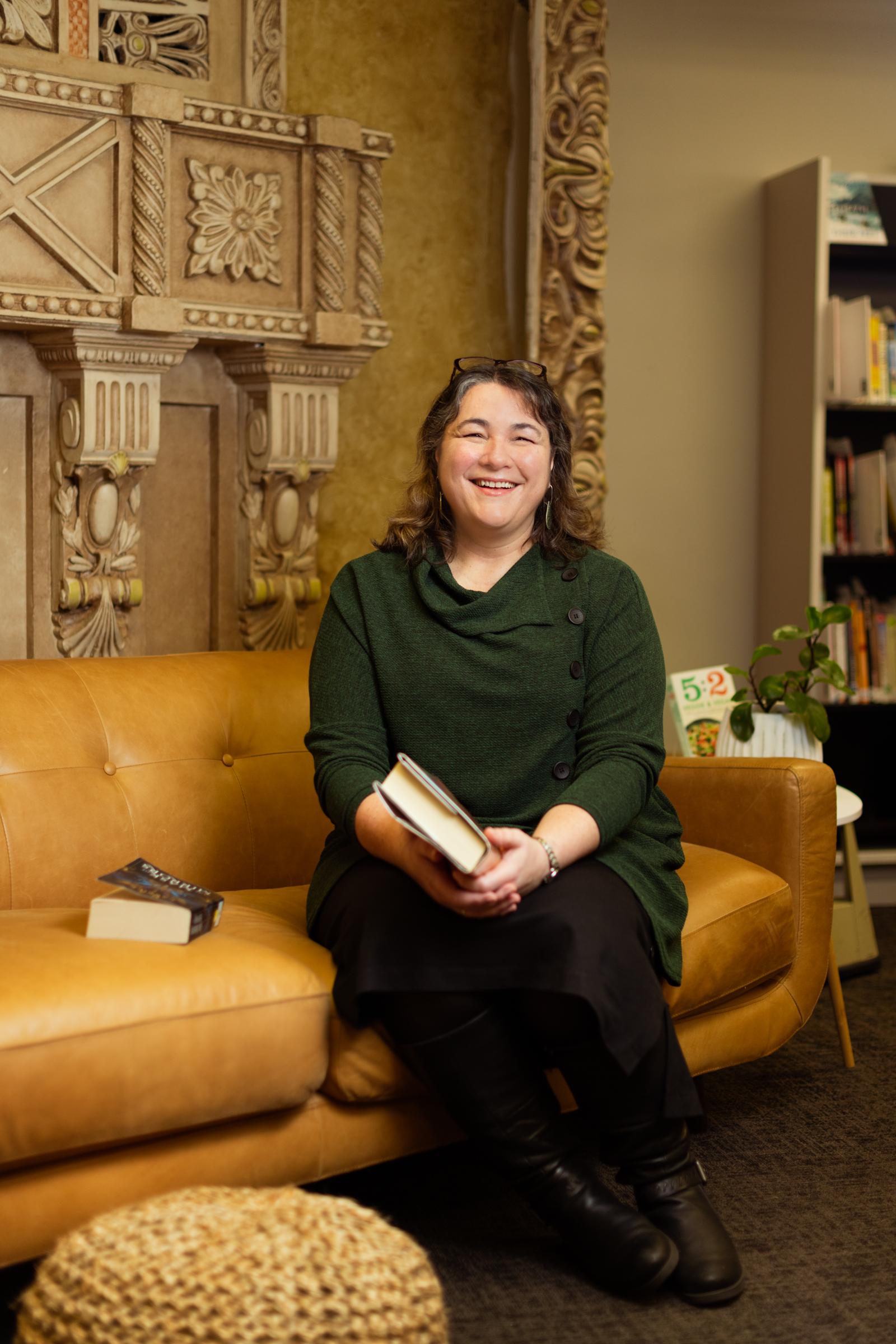Connected Conversations | Tracy Merlin
Growing up through adversity and hardship inspired Professor Tracy Merlin to help create better access to affordable health care for the disadvantaged. This aspiration led Tracy down the path of public health practice and research and now, being Interim Head of the School of Public Health and Director of the Adelaide Health Technology Assessment (AHTA) during the first pandemic in 100 years, all she can do is take life one step at a time.

Please tell us your name and a little bit about yourself.
My name is Tracy Merlin. I am the Interim Head of the School of Public Health and have been ‘interim’ for two- and a-bit years. I did not expect to lead the School of Public Health during the first pandemic in a hundred years. For once, public health is at the forefront of health and medicine. So, it has been an experience! Fortunately, I work with a fabulous group of people, which has made the job easier.
At the same time, I am the Director of the Adelaide Health Technology Assessment (AHTA) — my team of 30-odd researchers that I have led for the past 20 years. When a new medicine, or new medical service, or diagnostic is funded by the government, the odds are that they will have first asked us to assess whether it is safe, effective, and cost-effective. My team are highly skilled professionals and they love that their work has a major impact on the whole of society each and every day.
Tell us a bit about your time at the University.
I have been at the University of Adelaide for over 30 years as a student, professional staff researcher, research-only academic, teaching and research academic, and as Head of School.
What has been your journey to get where you are today?
I did not expect to be where I am today. I grew up in the country, in what you would call ‘disadvantaged circumstances’ — my mother was a young single parent of three, we had insecure housing and grew up below the poverty line. Back in those days though, there was free education and so I ended up being the first in my family to go to university. The plan was to learn and then get a job — which I did.
After seven years researching medical education and diarrheal diseases in Aboriginal children, I quit work to look after my daughter, Caitlin, and decided to study a Master of Public Health part-time. I wanted to learn epidemiology. I finished my masters while working part-time as a research officer for the University and now with a second child, Alex. When Alex was four, I, too, became a single parent, switched roles to being a research-only academic and started a part-time PhD.
I managed a team that grew from three to 50 and so, along with caring for two young kids on my own, the PhD was very part-time. I was an Associate Professor before my PhD was awarded. So, yes, I did everything in the wrong order! But my team and I won over $60 million in research funds over that time, I became the first Professor of Health Technology Assessment (HTA) in the country, and then Head of School and I am the current Chair of the International Network of Agencies for Health Technology Assessment (INAHTA), which is a network of 49 agencies serving governments in 30 countries. None of it was planned. Each step just seemed like a good idea at the time.
What do you love most about working at the University of Adelaide?
Making a difference — and, hopefully, for the better.
Where’s your favourite spot on campus?
The School of Public Health has moved five times in 14 years and so, you would think I would have a range of favourite spots competing for attention. However, for much of the time, I am usually welded to my desk! If I had the choice to sit anywhere, it would be in the lawns in front of Elder Hall, with the jacarandas and crepe myrtles blooming all around, Bonython Hall on one side and the magnolias in front of the Mitchell building on the other side. I like the flowers and the beautiful sandstone buildings.
What inspired you to pursue a career in health?
I had most of the childhood illnesses that people vaccinate against today, including measles, mumps, rubella and chicken pox. I remember the hallucinations when I had mumps — not much fun. I also know from experience how hard it is for the disadvantaged to access affordable health care, particularly in rural areas. What I do in Health Technology Assessment, and in public health, is to strive to make good quality, affordable health care available to all.

Have you ever had a life-changing experience?
For my honours research, I did the first ever pet-therapy project in a hospice with the terminally ill. At the tender age of 21, I spent six months interviewing people who were dying, talking to their families, as well as documenting the behaviour of the dogs trained by Guide Dogs Australia to provide them company. Many of the patients I spoke to gave me advice on how to live my life and I listened hard. I also grieved every time one of them died. So, I learned from an early age that life is short and you had better make the most of it and to try, if you can, to make the world a better place for those that are left behind.
What’s something most people don’t know about you?
For a time, I rode a horse to school; and we even had one in the backyard of our trust home for a while. I also had an orphaned silver-eyed chick that I used to take to class (it needed 24-hour care) and my English teacher was not impressed. In fact, I was surrounded by animals growing up and I still love them today. I have two dogs, two cats, two kids — a boy and a girl of each.
What’s the motto that you live by?
“Anyone who thinks that they are too small to make a difference has never tried to fall asleep with a mosquito in the room.”
— Christie Todd Whitman
I keep this quote on a sticky note on my work computer.
What TV show are you currently bingeing?
I am a sci-fi fan and there is precious little good sci-fi at the moment. The closest I have gotten recently is to see A Quiet Place and A Quiet Place 2. I jumped a good six feet a couple of times. I tend to get wrapped up in films (and books) and so will often jump, cry and laugh out loud, which is sometimes a bit embarrassing at the cinema.
What do you hope to achieve in the next 10 years?
It depends on what happens next at the University. We are going to be going through significant change and so I will just navigate the best way forward for my people as best I can. In my spare time, I would like to start an Australian branch or society of Health Technology Assessment, write a book, and learn how to paint… and finally finish the cardigan I have been knitting for the last 10 years (I never get time to sit down and finish it properly!).
